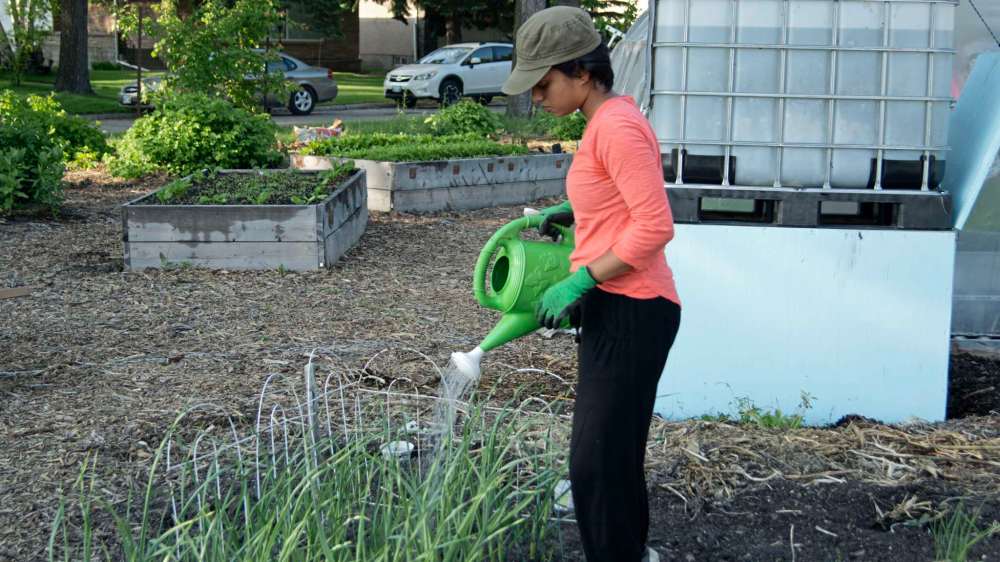Perennial progress in Permaculture Commons
Permaculture garden a community effort in Riverview
Advertisement
Hey there, time traveller!
This article was published 23/06/2015 (3854 days ago), so information in it may no longer be current.
As the sun sets over the baseball diamond in Riverview a handful of volunteers — diligently swatting away mosquitoes from their exposed skin — gathered at the People Garden to tend to the earth.
Every week during the spring and summer, neighbours meet in the garden at the corner of Balfour Avenue and Darling Street on weeknights to participate in an innovative exercise in agriculture: permaculture.
Permaculture, a term coined by creators Bill Mollison and David Holmgren in their 1978 book Permaculture One: A Perennial Agriculture for Human Settlements, is the combination of two words: permanent and agriculture, or permanent and culture.
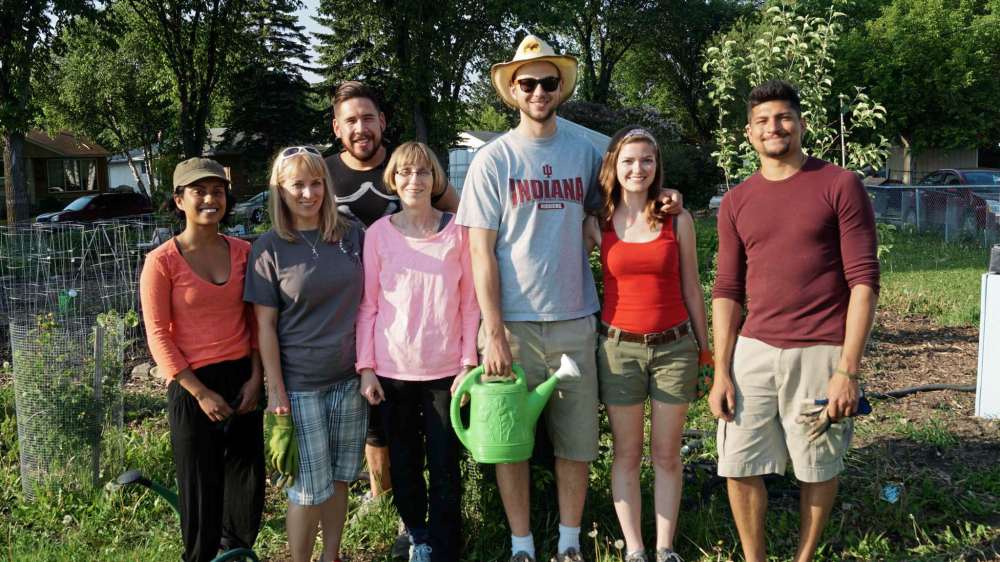
The People Garden, as it was named by neighbourhood kids, includes an herb spiral, a variety of vegetables, gilded trees and berry bushes, a hoop house, and a butterfly garden to attract pollinators. The elements of the garden, both visually appealing and practical in their application, have been engineered to maximize the productivity of the space.
This approach to urban food production is gaining momentum in communities across the globe and emphasizes consciously designed landscapes which mimic natural ecosystems, produce an abundant yield, and heal the land.
In Winnipeg, the Sustainable South Osborne Community Co-op (SSOCC) has established three gardens in Riverview and Lord Roberts as well as a community orchard along Churchill Drive, all founded on the principles of permaculture.
“We’re bringing biodiversity to the spaces, we’re increasing and building soil, the landscapes themselves are getting better because of this,” said Evan Bowness, co-founder of SSOCC and a sociology instructor at the University of Manitoba.
Bowness, who grew up in Riverview, was absorbed into the permaculture lifestyle by way of U of M sociology professor Rod Kueneman.
“The landscapes themselves are getting better because of this”
-Evan Bowness, co-founder SSOCC
“I was planning to go to business school and then law school, and I wanted to be a corporate shark and live in a glass tower in Toronto on Bay Street. That was the early plan,” Bowness said, half-jokingly.
“I took a sociology course from Rod Kueneman… and he freaked me out a little bit about some of the possible problems that we’re going to be encountering as a society, especially around our environmental impact and sustainability.”
Permaculture, as Bowness learned, is one solution to dwindling resources and increased food insecurity that puts the power of food production into the hands of individuals. Wanting to bring permaculture to his old neighbourhood, Bowness helped establish a few gardens in 2009, and the People Garden in 2013 through the Building a Community Commons Course he teaches at the U of M.
“Getting something like this started is pretty easy in some respects — building gardens doesn’t take a whole lot,” Bowness said. “I didn’t know anything about gardening but I was able to get a few people together and transform some lawn space into an edible landscape.”
According to Bowness, Riverview has taken to urban agriculture wholeheartedly. There are about 25 participants in the garden club, many of whom come from the neighbourhood, and the volunteer list has over 100 names.
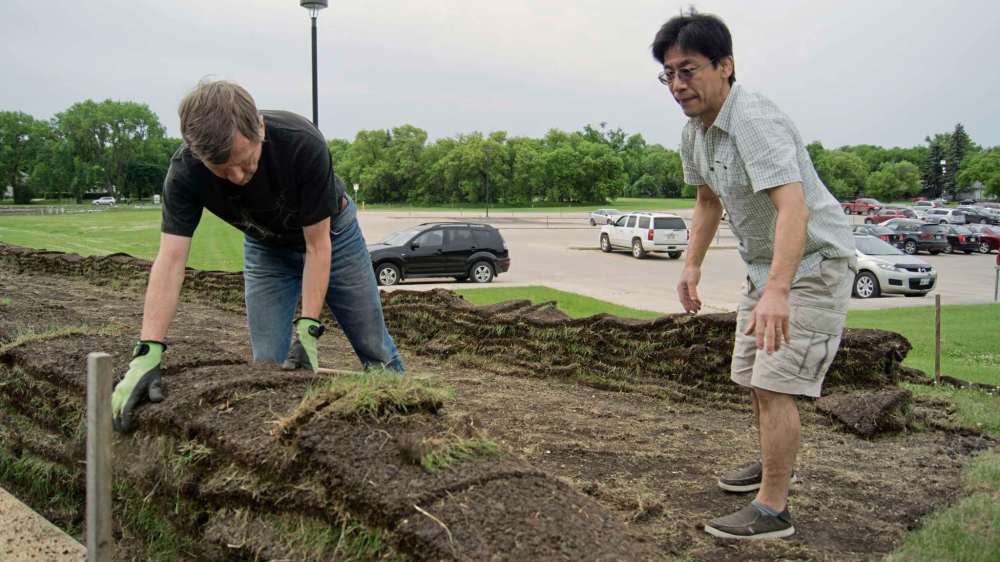
Garden club members are entitled to a 10 per cent share of the produce at harvest while volunteers take home the lessons learned toiling in the soil. The majority of the harvest is sold to pay the wages of the stewards who care for the gardens and the rest goes back to the co-op or is donated to local food charities.
Garden club member Ryan Jones recently moved into an apartment in Riverview and after stumbling across the community gardens he decided to get involved.
“I’ve been gardening most of my life due to a grandmother who gardened a lot and forced me to pick weeds and vegetables in her garden,” Jones, 23, said.
“For a while there was a time that I resented gardening just because I was forced to do it, but then once I got older and realized I could do it on my own, it was enjoyable and I got to eat things that are healthy, then my opinion drastically changed.”
Though Jones spends most of his time in the garden still picking stubborn dandelions and quack grass, this time it’s on his own terms.
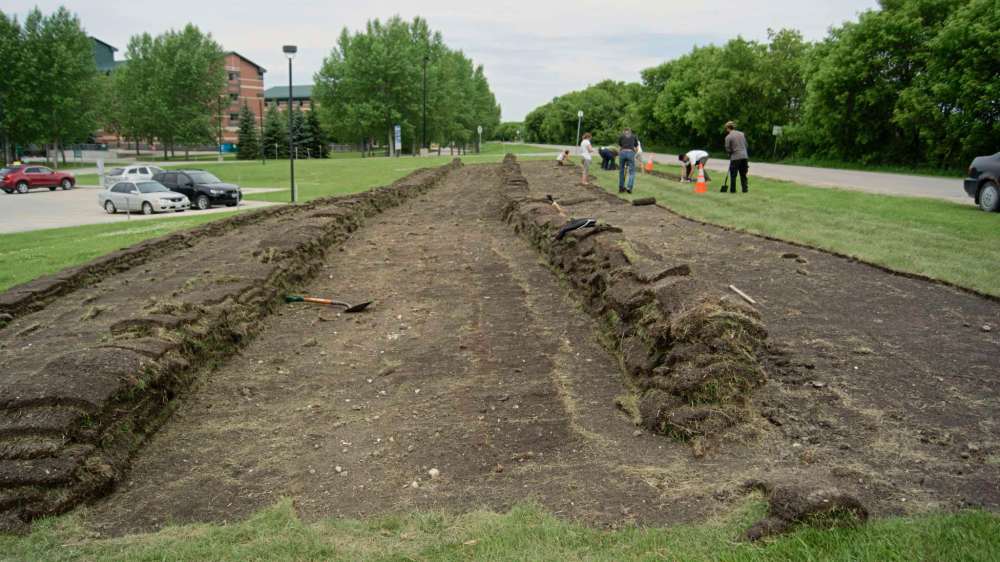
“I wouldn’t be doing this if it wasn’t a vegetable garden. With permaculture, I find it to be an interesting idea that I think is a pretty good one, so I want to devote my time to it. And we buy lots of groceries so it will be nice to get some free ones,” Jones said.
The passion for urban agriculture that’s sprouting in South Osborne is also beginning to change the community’s landscape above the ground level.
In 2013, the South Osborne Community Orchard was established along Churchill Drive, behind the Riverview Health Centre. The land, which is owned by the city, used to be a lawn requiring constant care, though it wasn’t productive in terms of food or employment. Today the space has 60 fruit-producing trees and dozens of other edible plants which create employment for the orchard stewards and generate revenue for the co-op.
This year, the orchard will be expanded north by approximately 1,500 square-metres, doubling its productivity. Volunteers were out in force on June 13 and 14 cutting and stacking the sod to create swales that will later double as beds for vegetables and a water retention system for the fruit trees.
“We’re currently at 3,600 square-metres in production, and we want to get up to half a hectare or 5,000 square-metres this year,” Bowness explained. “That puts us on a growth trajectory that we want to be on. We want to be able to get up to two hectares in five years.”
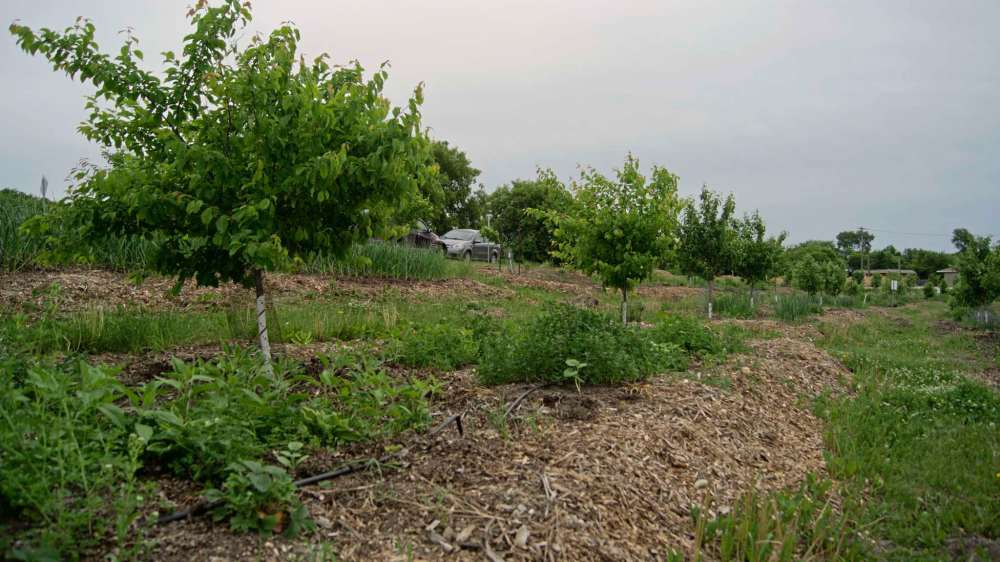
SSOCC has a number of greenhouses planned for the area along with another permaculture garden across Churchill Drive from the orchard, and further expansion in existing gardens. All the sites will fall under the banner of the South Osborne Permaculture Commons.
“We do want to continue to grow as long as it stays manageable, as long as there is an interest in what we’re doing, and a market for the food that we’re growing,” Bowness said.
For more information about the Sustainable South Osborne Community Co-op or the Permaculture Commons go to www.southosbornecommons.ca
The co-op will hold its annual fundraising harvest dinner on Sept. 20 and tickets are available on the website.




